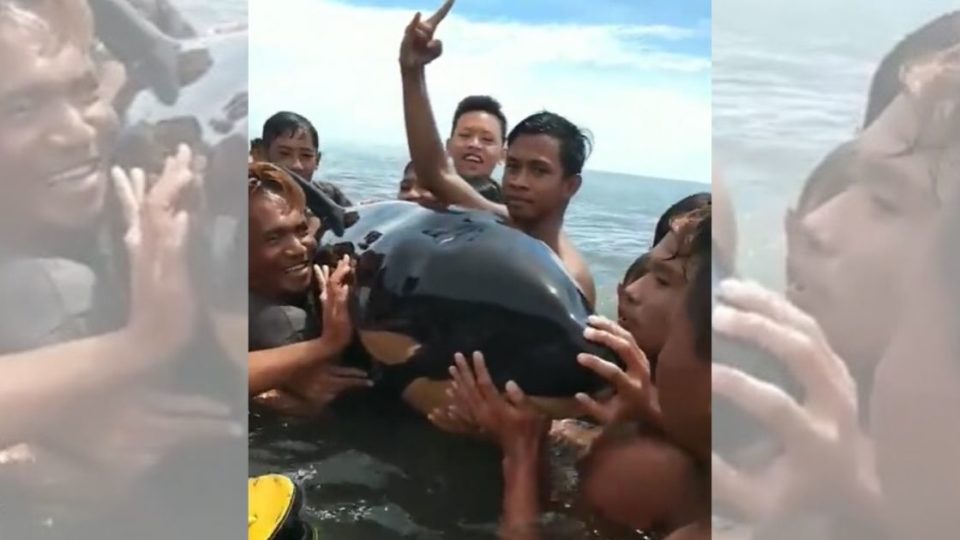Residents of Inobonto village in Bolaang Mongondow regency, North Sulawesi, recently filmed themselves casually petting and smothering love on a baby killer whale.
In the video, the Inobonto residents appeared excited with the orca calf’s presence at the beach. They can be seen taking turns for selfies, hugs, and even giving kisses to the young ocean predator — which they mistook for a harmless dolphin.
“Hello, hello, this dolphin came to the Inobonto beach. Hopefully the dolphin will bring blessings to our village,” a woman in the pink hijab said, while hugging and kissing the calf.
The orca calf appeared to be motionless and weak, and therefore didn’t pose a threat to the village residents. The clip of the whale lovin’ was widely circulated and shared by community accounts on social media recently, though it was reportedly filmed around late June.
The calf, which measured around two meters long, was reportedly found at 5am. The village residents attempted to push it back into the water, but it always swam back onto the beach. Local fisheries officials later guided the predator back to sea, and there have been no reports of it returning to the beach since.
Suria Darwisito, a lecturer from the Fisheries and Oceanology Faculty of Sam Ratulangi University in the province’s capital of Manado, said that the orca calf’s appearance was a unique phenomenon, as it was the first time for the species to be beached in North Sulawesi.
He said it was possible that the orca was stranded because of a shift in sea currents or due to an earthquake, which could have potentially disturbed its navigating senses. Suria explained that such occurrences tend to drive killer whales to suicide.
The villagers weren’t entirely wrong in calling the baby killer whale a dolphin considering that orcas (Orcinus orca) are the largest member of the oceanic dolphin family. Orcas, which are apex predators, hunt some of the larger marine mammals such as seals and other dolphin species. Though extremely rare, orcas have fatally attacked humans. The most notable of such incidents occurred in 2010, in which a captive killer whale named Tilikum, which had killed two people previously, killed his own trainer at SeaWorld Orlando.




